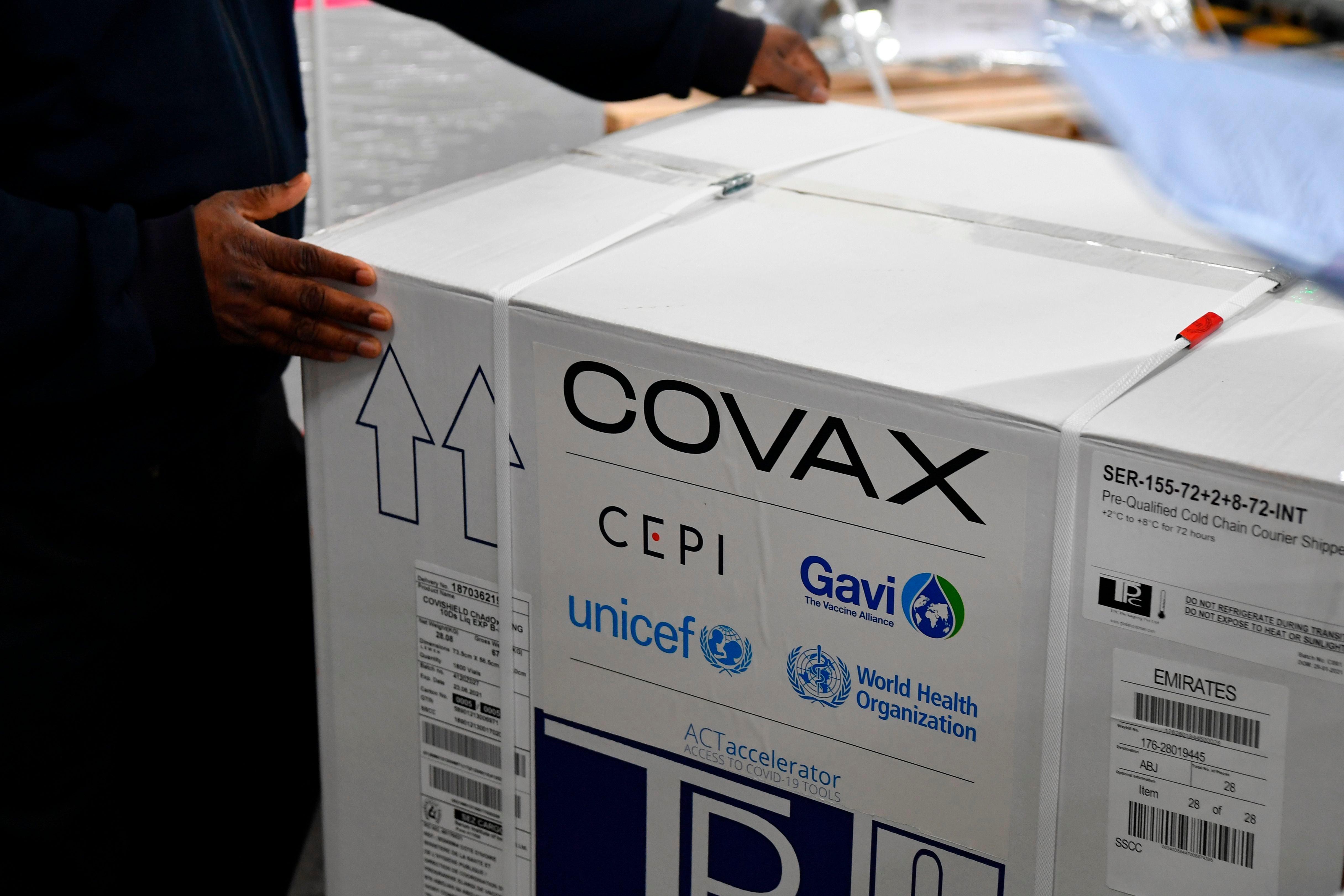India temporarily halts Oxford-AstraZeneca vaccine exports
The halt is being described as a ‘temporary squeeze’ and is likely to affect supplies until end of April

Your support helps us to tell the story
From reproductive rights to climate change to Big Tech, The Independent is on the ground when the story is developing. Whether it's investigating the financials of Elon Musk's pro-Trump PAC or producing our latest documentary, 'The A Word', which shines a light on the American women fighting for reproductive rights, we know how important it is to parse out the facts from the messaging.
At such a critical moment in US history, we need reporters on the ground. Your donation allows us to keep sending journalists to speak to both sides of the story.
The Independent is trusted by Americans across the entire political spectrum. And unlike many other quality news outlets, we choose not to lock Americans out of our reporting and analysis with paywalls. We believe quality journalism should be available to everyone, paid for by those who can afford it.
Your support makes all the difference.India has put a temporary hold on all major exports of the AstraZeneca coronavirus vaccine made by the Serum Institute of India (SII) amid an increase in domestic demand due to a surge in infection.
It will also affect supplies to Gavi, the World Health Organisation (WHO)-backed vaccine alliance, through which more than 190 participating economies – 98 higher-income and 92 low and middle-income — are expected to get doses.
“We understand that deliveries of Covid-19 vaccines to lower-income economies participating in the Covax facility will likely face delays following a setback in securing export licences for further doses of Covid-19 vaccines produced by the Serum Institute of India, expected to be shipped in March and April,” the programme’s procurement and distributing partner Unicef told Reuters.
“Covax is in talks with the Government of India with a view to ensuring deliveries as quickly as possible,” Unicef said.
British authorities are in touch with New Delhi to get the second batch of five million doses which were ordered from SII and have been held up by four weeks, according to Reuters.
The vaccine manufacturer has already delayed the AstraZeneca vaccine shipment to Brazil, Britain, Morocco and Saudi Arabia.
Read more:
There appears to have been no vaccine exports from the country since 18 March. Several factors have been responsible for the slowdown of vaccine export, including increase in domestic cases and the emergence of a double mutation of the Sars-Cov-2 virus in the south-western state of Maharashtra.
On Thursday, India recorded its sharpest daily rise in the past five months with 53,476 cases, taking the total number of recorded infection to 11.7 million.
“Everything else has taken a backseat, for the time being at least,” sources told Reuters. “No exports, nothing till the time the India situation stabilises. The government won’t take such a big chance at the moment when so many need to be vaccinated in India.”
Foreign ministry sources told BBC that the move is a “temporary squeeze” and is likely to affect supplies until the end of April.
India’s foreign ministry and the SII have not issued a statement on the matter.
The domestic demand is also expected to rise as India has announced the opening its inoculation drive for those over the age of 45 from 1 April. “[The export hold] is a temporary measure. Domestic demand will have to take precedence,” one foreign ministry source told the BBC.
SII had earlier said that it will produce one billion doses for low and middle-income countries. But last month, its president Adar Poonawalla tweeted that the institute “has been directed to prioritise the huge needs of India and along with that balance the needs of the rest of the world. We are trying our best.”
India has so far exported 60.5 million vaccine doses to 76 countries with 17.7 million of Oxford-AstraZeneca jab. Covax has a deal to buy 1.1 billion doses of AstraZeneca and US-based vaccine Novavax from SII.
India has so far administered more than 52 million doses, of which 47 million are the SII’s locally-made version of the AstraZeneca vaccine. The rest is the Covaxin doses, a homegrown government-backed vaccine developed by Bharat Biotech.
Join our commenting forum
Join thought-provoking conversations, follow other Independent readers and see their replies
Comments